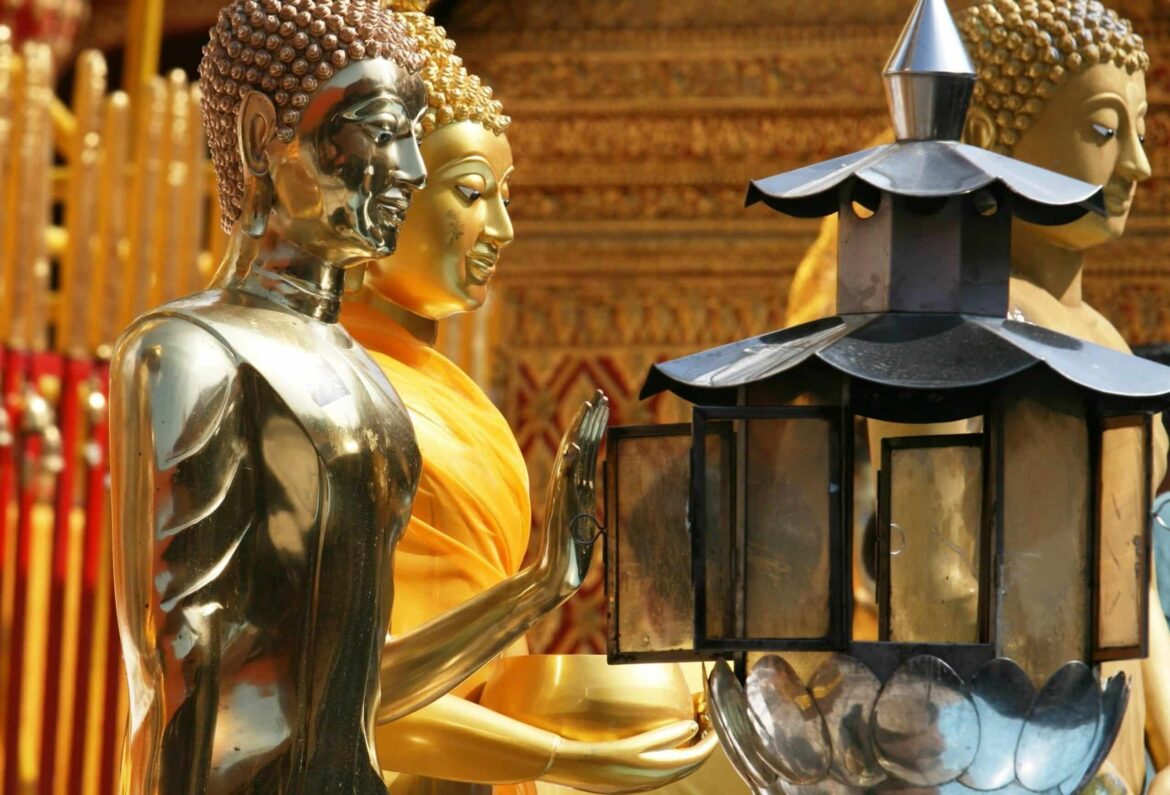1.1K
Afterlife beliefs in Buddhism offer a unique insight into the belief in an ongoing cycle of death and rebirth, known as samsara.
Buddhist beliefs about the afterlife: All you need to know
According to Buddhist teachings, life is made up of a constant cycle of birth, death and rebirth, known as samsara. There are several key concepts that shape the concept of the afterlife in Buddhism.
- Karma and rebirth: Karma plays a crucial role in Buddhism. The deeds, thoughts and intentions of an individual directly influence their future forms of existence. Death does not mark the end, but the transition to a new form of existence based on the acquired karma.
- Six realms of existence: Samsara encompasses six realms of existence, from the hellish regions through animal and spirit worlds to human and divine spheres. The type of rebirth depends on actions in previous lives.
- Bardo – Between death and rebirth: After physical death, the state of bardo occurs, an intermediate state between the previous life and the new existence. During the bardo, the soul experiences a kind of trial and is confronted with the consequences of its past deeds.
- The goal – achieving nirvana: Buddhism teaches that the ultimate goal is liberation from the endless cycle of death and rebirth. By attaining nirvana, the soul is freed from the shackles of samsara.
Nirvana – Liberation from Samsara
The concept of nirvana is at the center of Buddhism’s concept of the afterlife. Nirvana represents the final liberation from cyclical rebirths and the suffering associated with them.
- Nirvana as salvation: Nirvana is not a heavenly place, but a state of enlightenment and liberation from the limitations of samsara. It means overcoming the causes of suffering and rebirth.
- Overcoming desire and suffering: The path to nirvana requires the overcoming of desire and the realization of the illusion of the material world. The cessation of desire leads to liberation from suffering.
- Enlightenment through the Four Noble Truths: The Buddha’s teachings, especially the Four Noble Truths, offer a path to the attainment of nirvana. The truth about suffering, the causes of suffering, the possibility of ending suffering and the way to end suffering are key concepts on the path to salvation.
- The role of the eightfold path: The eightfold path, consisting of right insight, right thought, right speech, right action, right livelihood, right effort, right mindfulness and right meditation, serves as a guide to spiritual practice for the attainment of nirvana.

